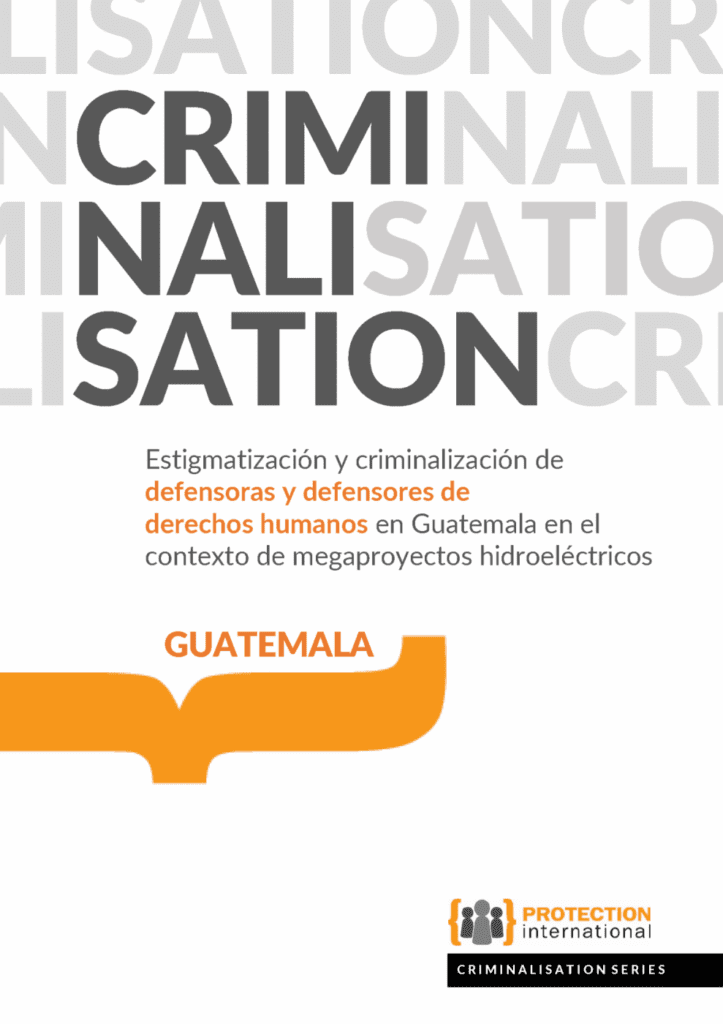7/12/2018 –
On the occasion of the 20th anniversary of the United Nations Declaration on Human Rights Defenders, Protection International (PI) today launches the fourth publication of its Criminalisation Series, Stigmatisation and Criminalisation of Human Rights Defenders in Guatemala in the context of mega-hydroelectric projects.
Although the Declaration on Human Rights Defenders remains a fundamental tool for the protection and recognition of human rights defenders, across the globe there has been an unprecedented increase in violations to the right to defend human rights. The environment in which human rights defenders find themselves has become increasingly hostile and violent, especially in the context of investment projects that violate human rights and environmental standards.
In Guatemala, many indigenous and peasant communities live in situations of repression and criminalization due to their peaceful opposition to mega hydroelectric projects, which are often carried out without consulting the affected communities (as established in ILO Convention 169) and without taking into account standards of environmental sustainability and respect for human rights. These projects, despite being presented as a sign of development and clean energy, are seen by the affected communities as a direct threat to the territory in which they live, to their way of life, and to their very existence as people.
In the last decade, Protection International has followed and monitored the criminalization process of several communities affected by hydroelectric megaprojects in Guatemala. This report is based on field investigations carried out between 2016 and 2017, studying the organizational processes of several communities to confront hydroelectric megaprojects in Guatemala. The report summarizes the main points and conclusions of this field investigation, identifying the factors that give rise to the process of stigmatization and criminalization of human rights defenders who oppose mega hydroelectric projects in Guatemala.
Open and download the report (only Spanish version available).
Other reports from the criminalization series:


